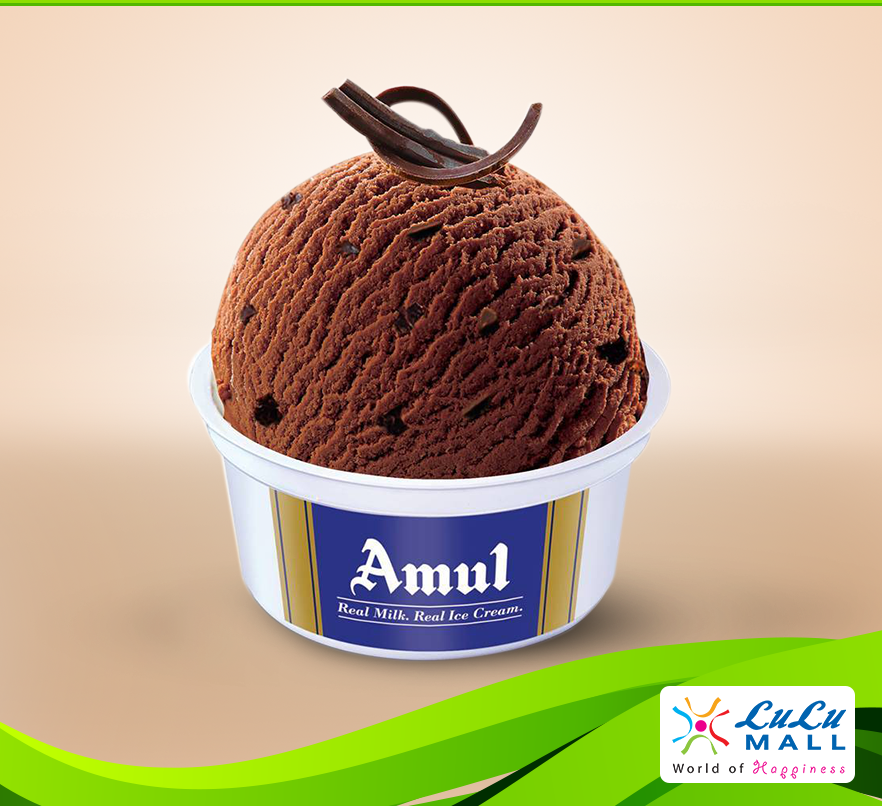


In an alarming incident, a woman from Noida received a frozen centipede in her Amul ice cream tub that she had ordered online from quick-commerce platform Blinkit. The woman had ordered the ice cream to make mango shake for her kids, but was horrified to find a 'kankhajura' sticking to its cover. The video of this incident has gone viral on social media with over 92,000 views, sparking concerns about hygiene and food safety in the supply chain. This is not the first time such a case has been reported, as just two days ago, a doctor from Mumbai found a human finger in his ice cream cone.
Frozen Horrors: Centipede in Amul Ice Cream, Human Finger in Ice Cream Cone
In a chilling incident that has raised concerns about food safety and hygiene in the online grocery delivery space, a woman from Noida recently found a frozen centipede in a tub of Amul ice cream she had ordered from Blinkit. The woman, who had intended to make a mango shake for her children, was horrified to discover the dead insect clinging to the lid of the container.
The disturbing video of the incident, which has garnered over 92,000 views on social media, has sparked outrage and prompted questions about the reliability and safety standards of online food delivery platforms.
Background
The Noida centipede incident is not an isolated case. Similar incidents have been reported in the past, including:
Top 5 FAQs and Answers
1. What steps has Blinkit taken in response to the Noida centipede incident?
Blinkit has issued a statement expressing regret and stating that they are investigating the incident. They have also suspended the vendor from whom the ice cream was purchased and are working with their quality control team to prevent such incidents in the future.
2. Has Amul commented on the incident?
Amul has stated that they are aware of the incident and are cooperating with Blinkit in the investigation. The company has also emphasized its commitment to food safety and hygiene and has expressed concern about the incident.
3. What are the potential health risks associated with consuming contaminated food?
Consuming food contaminated with insects or other foreign objects can lead to a range of health risks, including nausea, vomiting, diarrhea, and allergic reactions. In severe cases, contamination can cause food poisoning or even hospitalization.
4. What can consumers do to minimize the risk of consuming contaminated food?
Consumers can take the following steps to minimize the risk of consuming contaminated food:
5. What are the regulations governing food safety in India?
India has a comprehensive set of food safety regulations, including the Food Safety and Standards Act, 2006, which is enforced by the Food Safety and Standards Authority of India (FSSAI). These regulations establish standards for food production, storage, and distribution to ensure the safety and quality of food products.

On the auspicious occasion of Bhai Dooj, Prime Minister Narendra Modi, Union Home Minister Amit Shah, and Union Health Minister JP Nadda extended their heartfelt wishes to the nation, celebrating the sacred bond between brothers and sisters. This festival, also known as Bhaiya Dooj, Bhai Tika, or Bhau Beej, is widely celebrated across India with love and festivity, symbolizing the unbreakable affection and dedication between siblings. The day holds great significance in Hindu mythology and is associated with the liberation of all living beings from suffering and the bestowal of happiness.

On Wednesday, April 30, Hindus will celebrate the auspicious festival of Akshay Tritiya, also known as Akha Teej. This day is believed to bring luck and success, and is considered free from all malefic effects. People often buy gold on this day as it is believed to bring prosperity and wealth in the future. Akshay Tritiya is also considered to be ruled by Lord Vishnu, who is a revered deity in Hinduism. The best time to buy gold on this day is between 06:11 AM and 02:12 PM, according to Drik Panchang.

As Diwali comes to a close, the festival of Bhai Dooj celebrates the unconditional love and bond between brothers and sisters with various names across India. This year, Bhai Dooj falls on October 23, with the tilak ceremony auspicious time from 1:14 PM to 3:29 PM. It is a time to cherish the cherished memories and create stronger relationships between siblings. Share heartfelt wishes and blessings on this day to celebrate the beautiful bond of love and togetherness.

Marking a historic moment, President Droupadi Murmu offered prayers at the Sabarimala Temple in Kerala, becoming the first serving state head to do so. She climbed the 18 sacred steps to reach the shrine and offered darshan to Lord Ayyappa, carrying the sacred bundle on her head. This visit holds symbolic significance as the president represents both Vaishnavism and Shaivism, making it a moment of unity in Hinduism.

As Diwali celebrations come to an end, the day after is marked by the auspicious festival of Govardhan Puja or Annakut. In 2025, this festival falls on Wednesday, 22 October, and is a reminder to express gratitude towards nature and the environment. Devotees prepare special offerings and decorate their homes with flowers and diyas, honoring Lord Krishna and the bounty of nature. While the article provides general guidance, it also urges readers to consult experts before implementing any beliefs or practices discussed.

The Udupi Catholic diocese has extended warm Diwali greetings, citing the festival as a symbol of moving from darkness to light, falsehood to truth, and death to new life. The diocese emphasizes India's diversity and unity in celebrating different festivals together. Sharing a symbolic story, the diocese urges people to be the candle of hope that relights peace, faith, and love in the world. The message concludes with a call to action to be the light that builds bridges of love, faith, and compassion.

The Hindu Vikram Samvat calendar marks October 22, 2025, as Gujarati New Year, a day of renewal, positivity, and joy for devotees. From early morning prayers to temple visits, sweets, and sharing warm messages, the day is a festive symbol of hope and abundance. As it falls a day after Diwali, it's also a time to open new accounts, perform rituals like Chopda Puja, and spread love, gratitude, and togetherness with family and friends.

As Diwali celebrations come to an end, Mumbai is facing a major problem of poor air quality. The city is engulfed in a thick layer of smog, with visibility reduced to minimal in some areas. The situation has been worsened by unseasonal rain, with no significant improvement in air quality. It is not just Mumbai, but several other cities in India are also dealing with pollution levels breaching the "very poor" and "severe" categories. With AQI readings hitting 380 in some areas, measures need to be taken to combat this worsening air quality situation.

Kiran Mazumdar-Shaw, founder of Indian biotech giant Biocon, met with top government officials in Karnataka, including Chief Minister Siddaramaiah, to discuss the city's deteriorating infrastructure. This follows a recent social media post where Shaw called out the government for their ineffective management and lack of accountability. With heavy rains expected in the coming days, these concerns take on even more urgency as residents brace for potential waterlogging and traffic congestion.

Hospitals in the city have reported an increase in burn cases linked to the celebration of Diwali, with over a hundred cases reported at AIIMS Delhi alone. Despite the worsening air pollution, no major increase in respiratory distress cases was seen, but senior doctors anticipate an increase in the coming days. Several patients who suffered burns during the festival recounted how even seemingly harmless firecrackers resulted in severe injuries. While most cases were minor, a total of 129 patients were treated for firecracker-related injuries at Safdarjung Hospital.